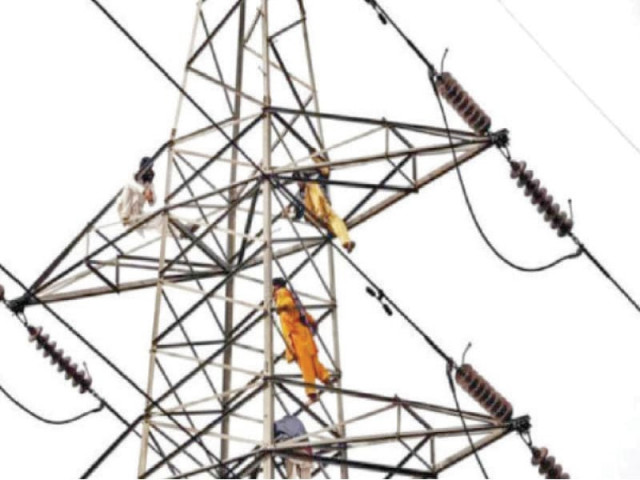PM for giving DISCOs to provinces
Forms committee to consider proposal that was not in line with SIFC decision

Prime Minister Shehbaz Sharif on Thursday set up a committee for transferring 10 power distribution companies (DISCOs) to provinces, which was not in line with last month’s decision of the Special Investment Facilitation Council (SIFC) that wanted to hand over those firms to the private sector.
The PM gave the directive to constitute a review committee to consider the proposal of handing over DISCOs to provinces, according to a statement issued by the PM Office after a meeting. Former petroleum minister Dr Musadiq Malik will chair the committee.
However, the SIFC in its last meeting on February 2 had decided that the “privatisation of DISCOs be dropped from the active privatisation list and the framework of private sector participation be finalised and got approved from relevant forums”.
Days after the SIFC decision, the Cabinet Committee on Privatisation (CCOP) also decided to initially give two DISCOs under concession agreements on a long-term lease of 20 to 25 years to the private sector.
It is for the fourth time that a government has decided to hand over loss-making DISCOs to provinces despite the previous moves wasted time and contributed to an increase in the sector’s losses.
“We are again treading the same path and every time when privatisation is near, such proposals are thrown, which end up wasting time,” said Fawad Hasan Fawad, former caretaker minister of privatisation.
During previous attempts to transfer the ownership of power companies to provinces, only Sindh had shown the willingness and that too on the condition that the sector’s losses and obligations would remain the responsibility of the federal government.
The transfer of DISCOs to provinces will not solve the problem until it is decided to end the uniform tariff policy, under which an honest consumer of Islamabad pays for theft in Sukkur and Karachi.
The former minister said that the delay in privatising DISCOs had already caused a loss of Rs2.7 trillion in the shape of power sector circular debt.
“The power sector has the capacity not only to take down the government but also the state of Pakistan and today it is on the verge of taking down the state,” said Fawad, who is a strong proponent of outright privatisation.
He said that the decision to hand over the management of two DISCOs to the private sector had been taken after extensive discussions in a CCOP meeting, although his personal view was the outright privatisation.
There has been less focus on privatisation of the power sector, which caused losses of Rs376 billion out of the combined losses of Rs730 billion suffered by all government-owned companies in 2022.
Last month, the CCOP decided to give Gujranwala Electric Power Company (Gepco) and Hyderabad Electric Supply Company (Hesco) on a 20 to 25-year lease contract. The annual State-Owned Enterprises (SOEs) Report showed that Gepco caused a loss of Rs20.6 billion while Hesco losses stood at Rs54.4 billion in fiscal year 2022.
When contacted, the privatisation secretary said that the privatisation programme was the prerogative of the federal government as per Section 5 of the Privatisation Commission Ordinance 2000.
He said that the addition or modification of the privatisation programme “is the competence of the federal government”.
The privatisation secretary said that the privatisation programme for the next five years would be chalked out by CCOP and the federal cabinet wherein all options for SOEs would be explored before its presentation to the federal cabinet.
Fawad said that in case provinces took the responsibility of the power sector, DISCOs would eventually become the worst local monopolies.
The PM Office stated that Shehbaz Sharif during the meeting made it clear that the responsibility of the privatisation process lied totally on the Privatisation Commission and the privatisation ministry. He also gave the directive to remove all bottlenecks in the process.
The PM stressed the need for ensuring transparency in the privatisation process and adopting the effective international standards of monitoring.
Shehbaz Sharif underlined the need for expediting the privatisation process of those SOEs that were causing a constant dent to the national exchequer and called for stabilising the economy and providing maximum relief to the common man.
“Obstacles in the way of privatisation be removed at the earliest so that the country can get rid of losses of billions of rupees and improve the economic condition,” he said while chairing the meeting.
The PM directed officials to take immediate steps to enhance the capacity of the departments linked with the privatisation process.
While reviewing the complete list and progress report on all the institutions involved in the privatisation process, the PM directed the officials concerned to submit the details of actions and goals with a clear time frame.
He told the Privatisation Commission and the ministry to present the pending issues related to privatisation to the cabinet soon after its formation for timely decisions as there was no room for further delay.
The meeting took an overview of the latest situation pertaining to the privatisation of Pakistan International Airlines (PIA), House Building Finance Company, First Woman Bank, Roosevelt Hotel, Heavy Electrical Complex, power plants and DISCOs, Pakistan Steel Mills and other loss-making institutions. It deliberated on the progress made so far and the obstacles confronted in this regard.
The PM directed to make the legal team effective and asked the Ministry of Law to suggest appropriate measures.
Published in The Express Tribune, March 8th, 2024.
Like Business on Facebook, follow @TribuneBiz on Twitter to stay informed and join in the conversation.


















COMMENTS
Comments are moderated and generally will be posted if they are on-topic and not abusive.
For more information, please see our Comments FAQ